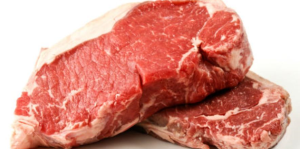Tags
MEAT.
Those four letter words describing the flesh of animals that, with the exception of the few vegetarians among us, we love to eat. We Ghanaians simply love our meat. I’m yet to attend an event or a household where it is absent on the menu. We love our mutton, chicken, beef and pork and usually buy them from our butchers in the local markets. However, has anyone spared the thought of wondering where these animals come from, how they are slaughtered, handled and transported to our markets for consumption?
I had quite a shock one morning on my way to work. As usual I had grabbed
a window seat as it gave me the chance to enjoy the “scenery” and get lost
in thoughts only to be rudely interrupted at the sight of three young me killing a goat just behind the wall of a park near an open gutter. Close to them was an open fire made with scrap tyre which I believe was meant for singeing the goat. To say I was horrified would be an understatement. Back in the day I could care less as I never really liked goats for their strong smell and irrationally thought their meat would also not be that great until six years ago; therefore if I’m to keep enjoying my goat khebab I need to be conscious as to how it’s been handled. Hey, that meat could end up at my favorite khebab hangout you know?
Unfortunately what I witnessed was not an isolated practice as it’s common to see livestock being slaughtered and prepared for market at the Korle Gonno beach close to James Town. Others are slaughtered in places that are not fit to be called abattoirs. After slaughtering and dressing the meat they are conveyed in the boots of taxis or backs of pickups and sent directly to markets. These butchers handle their meat without wearing gloves, masks, hair nets or protective clothes which defies almost all of our food safety codes thus making these meats unwholesome. It cannot be overemphasized the health implication of eating unwholesome meat as this makes us susceptible to contracting bacterial diseases such as Salmonellosis, Tuberculosis, Brucellosis and Anthrax; and paratisc diseases such as Taeniasis.
In 1996 the Accra abattoir, located at Tema Community 20 off the end of the Accra-Tema Motorway, was built for butchers to have livestock slaughtered under hygienic conditions. This was a very novel idea as it would ensure that meat sent to our local markets were of the highest quality and wholesome for human consumption. The butchers however claiming the abattoir was far from town refused to patronize the place making it run at a loss and at a point the facility had to be shut down. Additionally, another reason for the butchers boycotting the facility was for the fact that the animals were inspected for their health statuses and other diseases before being slaughtered hence any livestock found to be unhealthy was killed and their meat destroyed which displeased the butchers very much as it counted as a loss in revenue to them. The fact that some still refuse to use the place indicates there’s a high chance people in our city are consuming unwholesome meat and I believe our authorities are aware of that. What exactly is the Accra Metropolitan Assembly doing about this? When are they going to put in significant efforts to prevent unauthorized meat houses from operating? Are we waiting for a major food poisoning disaster to happen so as to set up committees to investigate and make “recommendations” when livestock are being slaughtered with impunity in any open area all over the city daily?
Thankfully, we’ve come this far without any major health issues as some of our supermarkets and a few reputable meat shops are alleviating my fears by doing the right thing but for how long are we going to ride on the wings of luck? It’s about time our city authorities stop sticking their heads in the sand like ostriches and really crack down on those abattoirs who disregard safety regulations before the worst hit us.
For now, I will be enjoying the “scenery” from my window seat, daydreaming about my next khebab bite until I’m jolted back to reality.

